Top Mountie says it was acceptable RCMP didn't have carbine rifles during Moncton shootings
RCMP Commissioner Bob Paulson says he was concerned by police militarization and adoption of carbine rifles
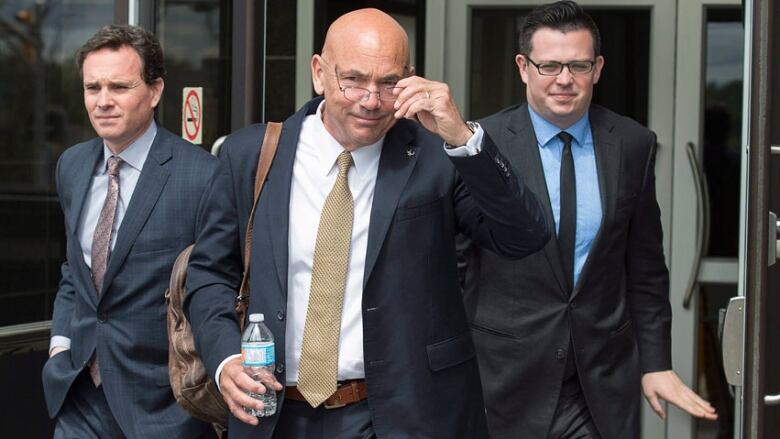
RCMP Commissioner Bob Paulson says it was acceptable that officers in Moncton, N.B., didn't have carbine rifles or the training to use them when they responded to Justin Bourque's deadly shooting rampage on June 4, 2014.
Paulson testified Thursday he doesn't believe the Moncton officers were poorly equipped, or that carbines would have made any difference that night.
He made the comments duringcross-examination by the Crownat the RCMP's Labour Code trialin connection with the shooting deaths of three Moncton Mounties and wounding of two others.
The national police force is charged with violating four Labour Code provisions. It's alleged the force failedto provide members with appropriate use-of-force equipmentand trainingfor responding to an active threat or active shooting event, and failed to ensurethe health and safety of every person in the force.
- RCMP training prior to shootings was 'solid,' expert testifies
- Rollout of carbines raised concerns about 'two-tiered system'
- On mobile?Follow our live coverage here
Paulson was not summoned by the Crown, and is not personally named in the indictment, but chose to attend courtto defend the RCMP.
"Well, I'm the accused," he told reporters outside the MonctonLaw CourtsThursday afternoon, following his approximately six hours of testimony.
"I represent the RCMP and as the accused individual, the commissioner that's in charge, I thought it appropriate to come and tell my story. And so I did."
But when the Crown grilled Paulson about whether he was "ready to take any responsibility for the deaths of those three officers," he replied, "No."
Paulson declined to make any other comments to reporters outside court, saying he didn't think it was appropriate.
Evidence phase ends
Paulson wasthe final witness at the six-week provincial court trial. Closing arguments are expected to begin on July 4, but Judge Leslie Jackson has advised that his decision will not be quick. He anticipates it will take "some time," he said.
Paulson's testimony comes just two weeks before he plans toretire, after 39 yearsof service, including 32 for theRCMPandthe last five as the top Mountie.
"Policing fit me like a glove," he told theMonctoncourtroom. "I loved the job, I loved succeeding in the job."
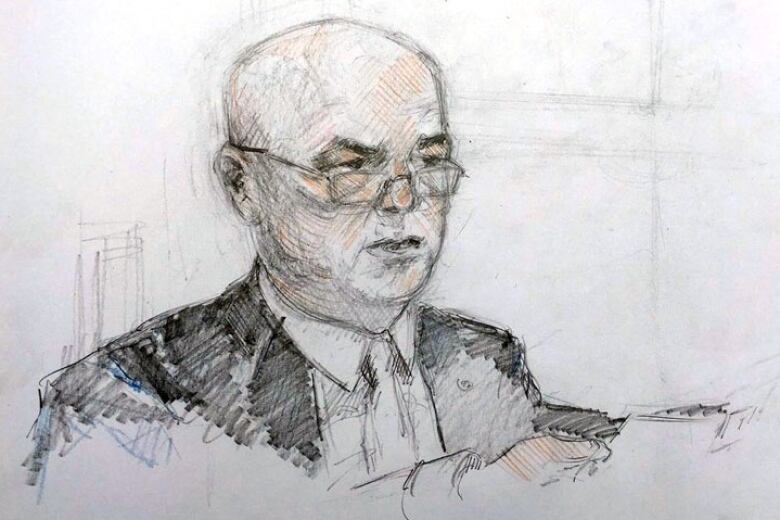
Crown prosecutor Paul Adams led Paulson through a firearms capability evaluation reportwritten in 2011, the same year he was appointed commissionerwhichidentified equipment gaps, compounded by a lack of training.
Adams asked Paulson if he agreed those gaps still existedfollowing Bourque's2014 shooting spree in a residential area ofMoncton'snorth end. Paulson, who wore a black suit rather than his uniform in the witness box,agreed.
"That's your testimony, that that's acceptable?" asked Adams.
"Yes, with thecaveat that it's not acceptable the officers were murdered in that way and that the attacker acted the way he did," Paulson replied.
The prosecutor asked if it was reasonable that it "took sevenyears" to deploy carbines, which were first recommended to the force in 2006 and accepted by senor managers in 2011.
Yes, "given the circumstances," said Paulson, referring to the studies he believed needed to be completed to justify their use, as well as financial challenges.
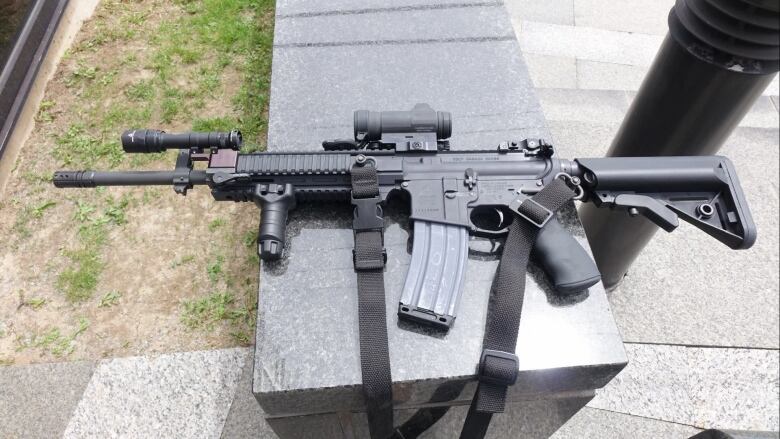
Carbines aresemi-automatic,short-barrelledrifles that have a longer and more accurate rangethanpistols or shotguns.
The use ofcarbines and why the Mounties didn't have them has been at the centre of the trial.
Bourquewas carryinganM305.308 semi-automatic rifle and a Mossberg 500 12-gauge shotgun during the shootings. The RCMP officerswho responded werearmed with their duty pistols.
Mountiesare now equipped with carbines, but the rifleswere not available to the Moncton officers on the night of the shootings.
Previous witnesses at thetrial have suggestedsome of the deaths could have been prevented if the officers had been better armed.
The court has also heard about six internalRCMPreports all done after the 2005 murder of four Mounties in Mayerthorpe, Alta. thatrecommended police be armed with carbines.
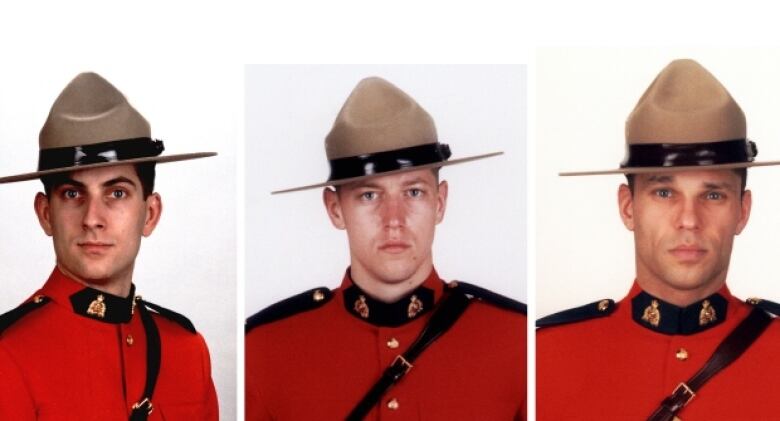
Paulson appeared to tear up as the Crown reviewed the number ofRCMP officers killed by gunfire in the line of duty since 2010. Ten of 11 were killed by long guns, not including the Moncton Mounties, the courtroom heard.
No one can say that any one of them would survived if they had been armed with a carbine, testified Paulson.
"How many experts would have been needed to tell you carbines can mitigate the risk officers face?" Adams asked.
"Well, it would've needed to be an expert who could've put some evidence behind their assertions," Paulson replied.
Nadine Larche, widow of murdered officer Const. Doug Larche, 40, sighed at his response.
It's not realistic to expect perfection, but [it's] not unrealistic to compare our performance with perfection.- Bob Paulson, RCMP commissioner
The other officers who were shot and killed by Bourque were constables Fabrice Gevaudan, 45, and David Joseph Ross, 32. Constables Darlene Goguen and Eric Dubois were wounded.
It was a "devastating set of events our officers were asked to respond to and in my view, [they] responded heroically and without fail," said Paulson.
Hewas on a flight to Vancouver when he learned of theMoncton shootings. He activated his BlackBerry during the plane's descent and discovered numerous messages, he said.
By the time the plane landed, he said, he had a full appreciation of the situation and cancelled his meetings in Vancouver. He spoketo New Brunswick officials on the phone to ensure they had the support they needed and returned to Ottawa on the next available flight.
He travelled to Monctonon June6, the day after Bourque was captured, and met with officers and relatives of the fallen officers. He also ordered a review of the shootings in a bid to identify areas for improvement and try to prevent a similar situation from happening again.
"It's not realistic to expect perfection, but [it's] not unrealistic to compare our performance with perfection," he said.
Commish Paulson arrives at Moncton courthouse where #rcmp on trial for failing to properly train/equip Mounties during 2014 shooting #hw https://t.co/WanAcaTUTc
—@alisoncrawford5Bob Paulson le commissaire de la GRC arrive la cour Moncton pour tmoigner au procs de la GRC. pic.twitter.com/LdRxRAGm9K
—@elisapserretUnder direct examination by MarkErtel,defence lawyer for the force, Paulson said there was no way to foresee an active outdoor shooter event. No police force provided outdoor shooter training prior to theMonctonshootings.
The fact that carbine deployment was sped up after the Moncton shootings was not an admission on his part that it had been too slow, he said.
A question that remains unresolved for him, he said, is the extent to which carbines need to be deployed.
It's not just about image; it's about the relationship with people, said Paulson. It also affects quality of life in Canada, he said.
Concerns about police militarization
Paulson saidhe hadconcerns about police militarization, and the adoption of carbine rifles represented a "significant change" in the use of force for front-line officers.
But his feelings had nothing to do with how long it took the national police force to equip its members with carbines, he said.
Paulson said he doesn't shy away from criticismafter an event like the Moncton shootings. "Policing is a complex and evolving reality."
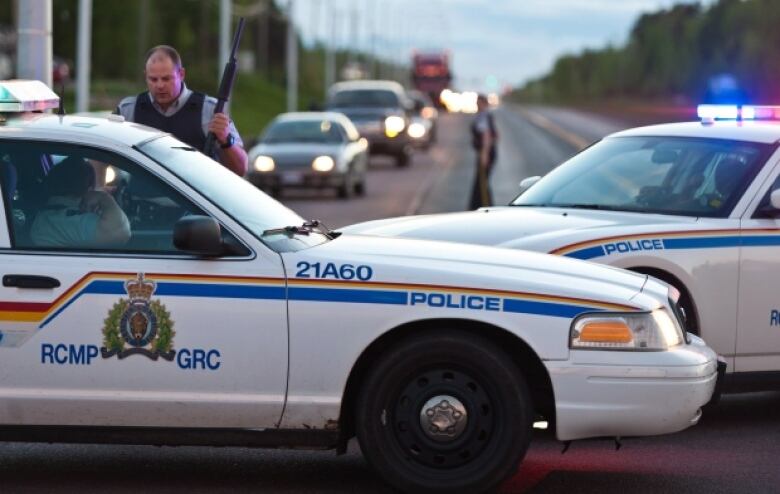
But as he stated in his responseto the MacNeil report he commissionedinto the shootings,"We can't devise a policing strategy that considers an offender like him [Bourque] at every corner. We cannot."
The 2015 report, ledby retired assistant commissioner AlphonseMacNeil,made 64 recommendations, including expedited deployment of carbines.
Carbines 'front and centre' in 2009
Paulson said carbines were one of about a dozen priorities for the RCMP use-of-force section starting in 2009, when the public's confidence in the force was shaken amid allegations of sexual harassment, the mismanagement of pension funds and the 2007 Taser death of RobertDziekanskiatVancouver International Airport.
Carbines were "front and centre," he said, but the force had to consider the effect they would have on the primary role of police, which is policing people with their consent.
Military-style weapons, such as bigger guns, armoured vehicles and more body armourcan strain the relationship between police and the communities they serve, said Paulson, who began his career in the military.
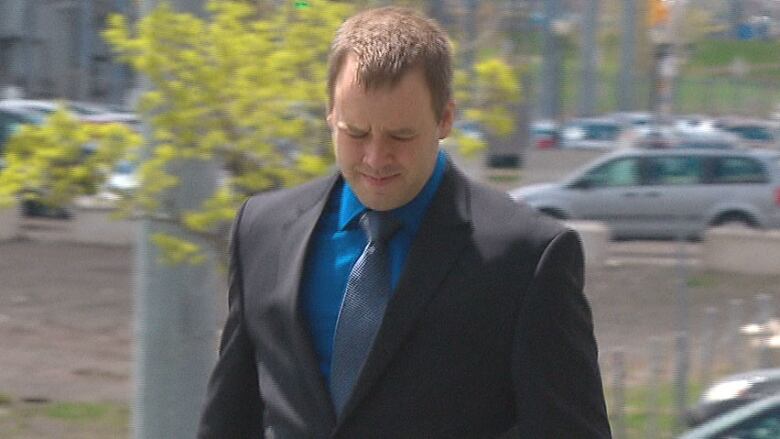
TheRCMPhad an opportunityto learn from the Taser fallout, he said. There wasn't a lot of evidence for Tasers,but the force needed to make Canadians understand the purpose of carbines and the difference they could make for front-line officers.
That's why extensive research was done, he said.
"It was what we ought tohave done with the [Taser]," he said.
Paulson said he didn't feel carbines were the appropriate weapon for the RCMPin 2009-10, but on Sept. 6, 2011, he supported the decision to equip Mounties with Colt C-8 carbines.
Need for 'precise policies' on carbine use
Paulson has previously said RCMP members have access to the tools they need.
He has also suggested the adoption of carbine rifles for front-line officers had to be measured following Dziekanski's Taser death.
"We knew the addition of another deadly force option, at a timewhen we were being condemned for our conducted electrical weapon would require a careful and formal analysis of the need for thecarbine, together with the creation of precise policies on its use,its distribution and training," Paulsonstated in an internalemailin 2014 that was obtained and published byMaclean's magazine.
Earlier this year, during his testimony to a committee of senators, Paulson described the carbine issue as "very electric."
"Very emotive discussions go around the carbine," he has said. "The use of our tanks, because we have all that equipment we got tanks, we got drones, we got machine-guns. But, you know, are we going to be going into shoplifters with a carbine?"
Bourqueis serving five life sentences with no chance of parole for 75 years after pleading guilty to three counts of first-degree murder and two counts of attempted murder.
With files from Gabrielle Fahmy and Alison Crawford












_(720p).jpg)


 OFFICIAL HD MUSIC VIDEO.jpg)
.jpg)



























































































